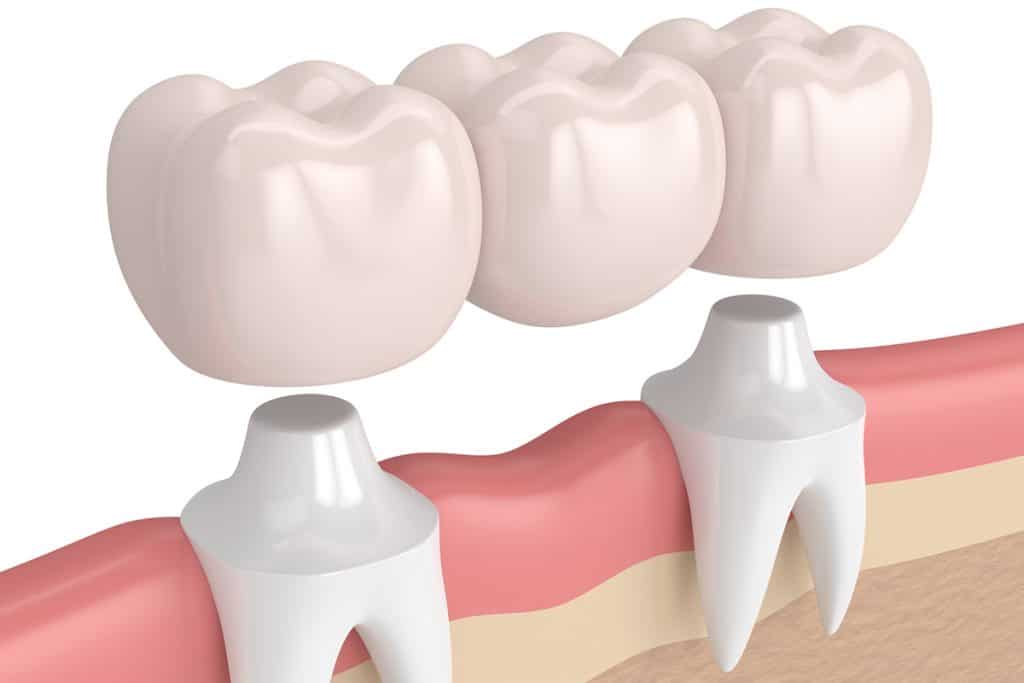How Long Do Dental Bridges Last?

If you are missing a tooth, you may consider a dental bridge to close that embarrassing gap in your smile. But, before you proceed with a dental bridge, you might wonder how long this type of restorative dentistry treatment usually lasts. Let's examine the expected lifespan of a dental bridge and how you can help extend your bridge's lifespan.
Dental Bridge Life Expectancy
Since dental bridges have life expectancies that vary significantly, it can be difficult to determine exactly how long yours might last. Some dental experts say that a dental bridge may only last for just 5 – 7 years. However, others disagree and argue that a bridge can easily be expected to have a lifespan of at least 10 – 15 years. You should also know that many agree that with adequate care, some bridges have the potential to last a lifetime.
Several factors can impact how long a bridge might last. For instance, metal bridges may last indefinitely. Even still, metal bridges are becoming less popular due to their unattractive appearance. On the other hand, porcelain bridges may not last as long. Still, many receiving them feel that the outstanding aesthetics of such a bridge make them a worthy investment in their smile.
Making Your Bridge Last Longer
Proper oral hygiene is essential to extending your dental bridge's lifespan. Thorough brushing and flossing can help prevent harmful bacteria from sneaking beneath your bridge and attacking the teeth that support it (known as the abutment teeth). Using a floss threader or water flosser is also essential to clean the narrow space beneath your artificial tooth. While this space may be small, it can harbor bacteria and debris that harm your natural teeth, gums, and bridge.
Additional steps you can take to protect your bridge include the following:
- Watch what you eat: Although most dental bridges are durable and can stand up to virtually any food, you should still be selective about the foods you consume. Eating a lot of hard foods can be risky as they put pressure on the bridge, which may cause it to break or crack. It's best to avoid biting down on things like jawbreaker candies, ice, and bones.
- Watch out for signs of teeth grinding: Frequently grinding or clenching your teeth can also put pressure on your bridge and compromise its structural integrity. While doing this every so often isn't a big problem, if it becomes a habit, it can damage a bridge over time. Teeth grinding usually occurs during the night, so make an appointment to see our dental professionals to get a night guard to protect both your natural teeth and your bridge if you notice your jaw is often sore in the morning.
- See your dentist regularly: Your dentist will examine your bridge at each checkup to see if it needs repair or replacement. They can let you know what problems they foresee, if any, and how long they anticipate your bridge lasting.
Are You Interested in Getting a Dental Bridge? Make an Appointment at Greater Essex Dental Today!
Dental bridges not only improve your smile but can also prevent your remaining natural teeth from drifting out of place and enhance your chewing ability. When cared for correctly, they can last for many years.
By taking a few simple steps to protect your bridge, you can ensure you get the most out of your investment in your smile with a dental bridge. Our dental professionals are happy to answer any further questions you may have about this reliable tooth replacement solution. To schedule a consultation, please contact our office today. You can reach us at 978-346-4610 or send us an email.
